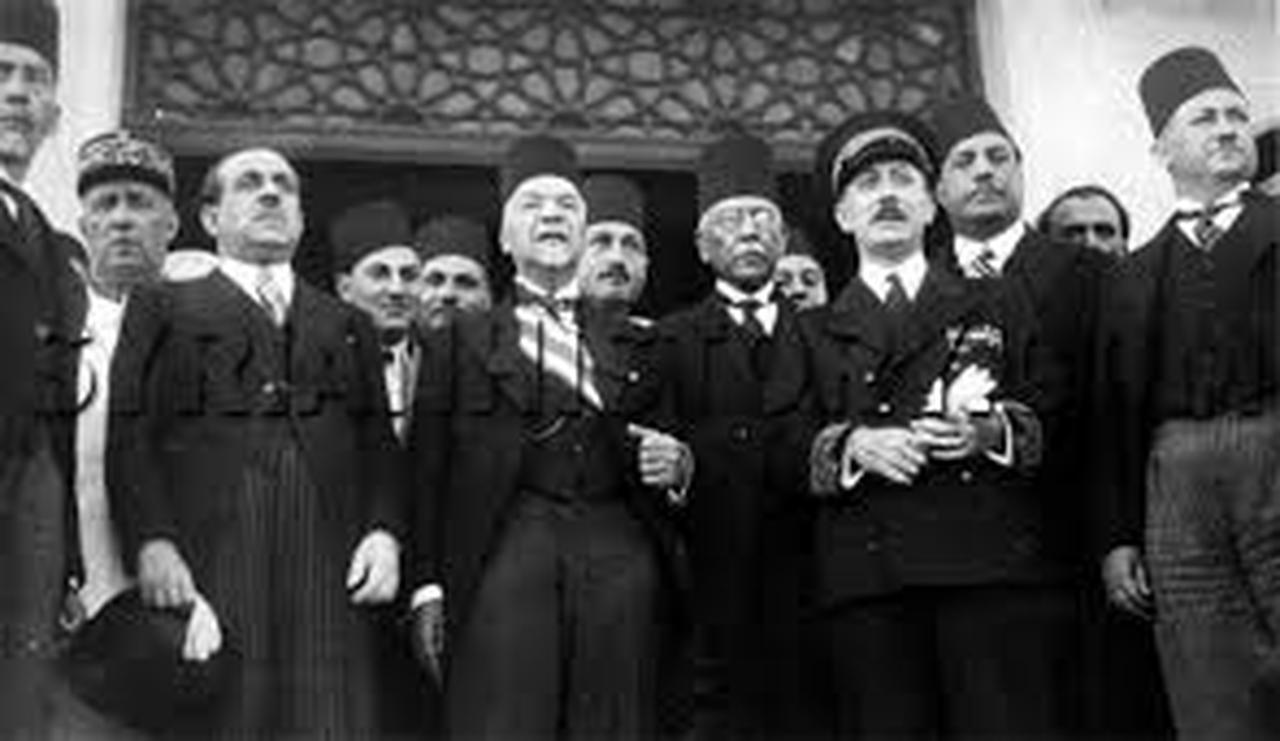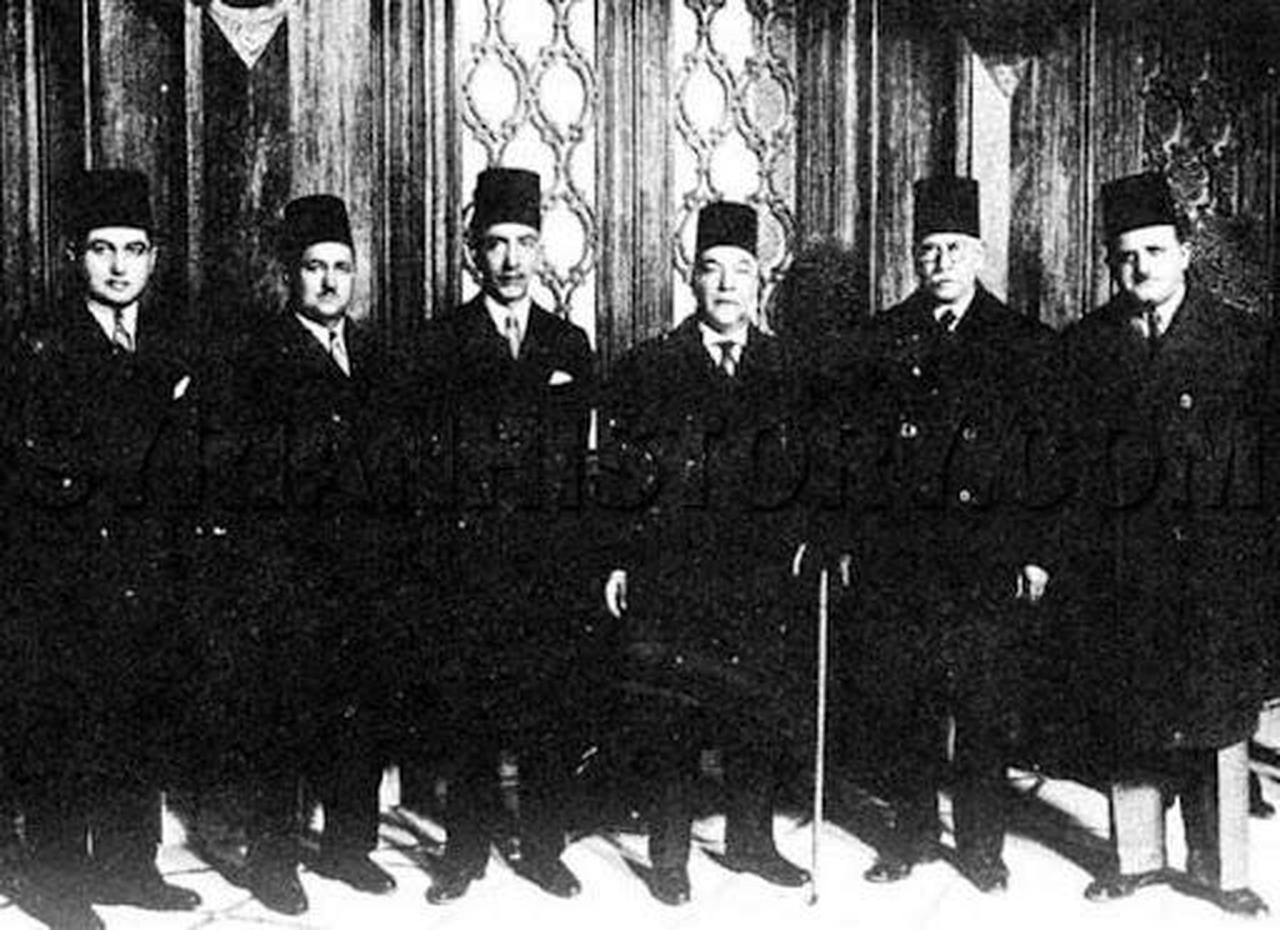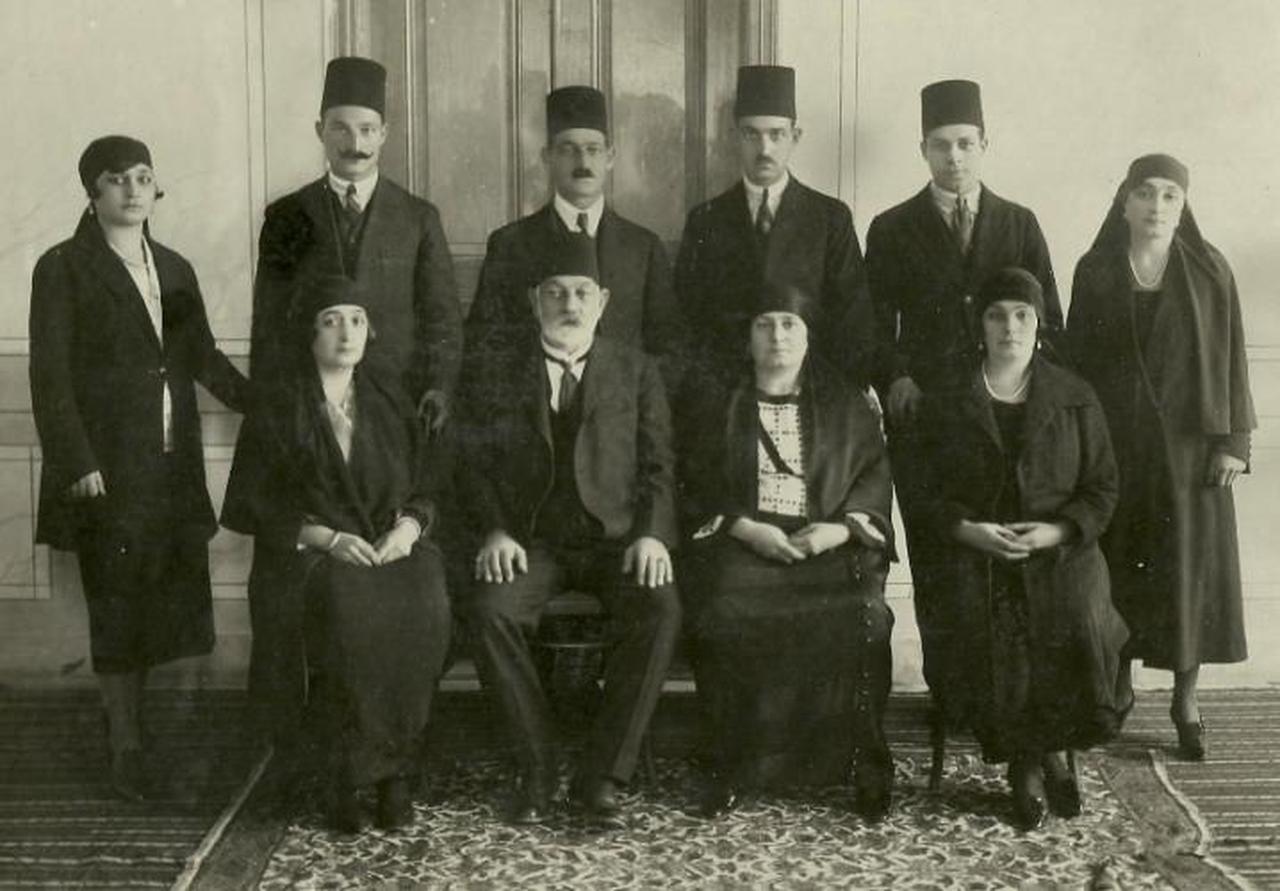
Mohammed Ali bin Ahmed Ezzat Al-Abid was an Ottoman diplomat and Syria's first president. He was one of Syria’s wealthiest figures, possibly the richest in Syria's history. He became the first person to hold the title of President of the Syrian Republic (1932–1936) and was the first leader to be elected by the people rather than appointed by the French Mandate.
Nicknamed “The Prince,” he began his political career as the Ottoman Empire’s ambassador to Washington and later served as Minister of Finance in the Syrian Federation. His father was Ahmed Ezzat Pasha Al-Abid, who was the chief secretary to Sultan Abdul Hamid II.
Al-Abid was born near Damascus’s Old City into a prominent and wealthy political family. His grandfather was a notable Damascene leader, and his father, Ahmad Ezzat Pasha, was chief secretary to Sultan Abdul Hamid II.
The family held significant wealth, including shares in the Suez and Panama Canals and properties across major cities. Al-Abid received private tutoring, studied religious sciences in Beirut, and earned degrees in civil engineering and law from the Sorbonne in France.
After graduating in 1905, he worked as an advisor in the Ottoman Ministry of Justice and later for the Grand Vizier Ibrahim Hakki Pasha. In 1908, Sultan Abdul Hamid II appointed him ambassador to Washington, but his tenure was cut short by a military coup that deposed his father and the Sultan. The family went into exile in Paris until Ottoman rule in Syria ended in 1918.
Despite tensions with the ruling Young Turks, the al-Abid family remained loyal to the Sultanate and rejected the Arab Revolt of 1916. Ahmad Ezzat Pasha considered the revolt a betrayal and refused to return to Damascus after the Arab government’s establishment in 1918.
He also declined to pledge allegiance to Prince Faisal when he was declared King of Syria in 1920.
When the French Mandate was imposed later that year, Muhammad Ali al-Abid accepted an invitation to return to Syria and invest in his homeland, while his father chose to stay in Egypt.

In the 1932 presidential election, Hashim al-Atassi, leader of the National Bloc, withdrew from the race after the Bloc lost all seats in Aleppo. Al-Atassi urged his remaining seventeen deputies to vote for Muhammad Ali al-Abid to block the candidacy of Subhi Barakat. The vote resulted in al-Abid winning thirty-six out of eighty-six parliamentary votes. On June 11, 1932, he was sworn in as the first president of the Syrian Republic.
Historian Sami Marwan Mubaid described the inauguration:
“The elected president slowly rose under the dome of the Syrian Parliament and climbed the elevated platform before the deputies. Al-Abid was old then but stood with pride and dignity on that historic day, fully aware of the heavy responsibility on his shoulders. The hall erupted in thunderous applause from the deputies celebrating the great event.”
Al-Abid’s indecision sparked political turmoil when he appointed a mixed cabinet of opponents and French loyalists. He named Najib al-Armenazi secretary-general of the presidency and unexpectedly appointed the French-aligned Haqqi al-Azm as prime minister, forming a politically incompatible tripartite leadership. He also invited opposition figures Jamal Mardam Bey and Midhat Arslan to join the government.
The National Bloc rejected these appointments, accusing al-Abid of bypassing the country’s largest political faction and legitimizing a government subservient to France. They vowed to overthrow his administration.
Opponents traveled to Saudi Arabia and Egypt, denouncing French abuses and their Syrian allies, including al-Abid. They boycotted key public services and demanded lower prices, calling on the president to stand with the people, but al-Abid remained unable to make decisions without French approval.

Matters worsened when al-Abid agreed to a Franco-Syrian Treaty of Friendship and Cooperation under French insistence in November 1933. The treaty draft, written only in French and never translated into Arabic, excluded any mention of Syrian independence. It granted France control over Syria’s foreign affairs, army organization, security forces training, and education curricula.
Al-Abid objected to the treaty’s clauses and refused to sign or allow it to pass during his term. He tasked Prime Minister Haqqi al-Azm to negotiate on Syria’s behalf, conditioning acceptance on Syria’s admission to the League of Nations and limiting the treaty’s duration to five years, ending with the mandate.
However, the National Bloc and Speaker Subhi Barakat rejected the treaty outright.
On Nov. 21, 1933, the parliament voted against it by a large majority, infuriating the French, who promptly dissolved the Syrian parliament indefinitely.
Al-Abid’s political career rapidly declined after a delegation from the National Bloc, led by Hashim al-Atassi, returned from Paris with a historic agreement granting Syria gradual independence over 25 years while maintaining limited French military and cultural privileges. The agreement also included the reunification of Alawite and Druze territories with Syria, something al-Abid had failed to achieve.
Upon witnessing the warm public celebration of the delegation’s return from his palace balcony, al-Abid realized he had been overtaken by events. He resigned from the presidency to allow early elections at the end of 1936.
He congratulated his friend Hashim al-Atassi on his presidential victory and handed over power, then retired to Nice on the French Riviera. Muhammad Ali al-Abid died in 1939 at a hotel in Rome. His body was returned to Damascus for burial.